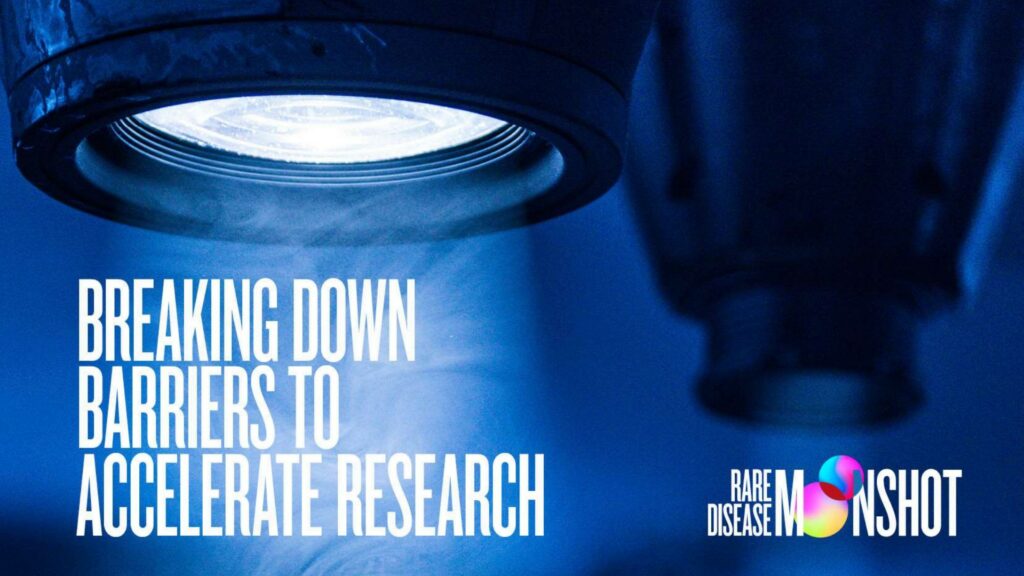Under the tagline “We Won’t Rest,” EFPIA’s members are leading the drive to innovate and find new treatments for previously untreatable conditions.
To protect the health resilience of ordinary European citizens, innovation, they believe, is key to tackling this challenge. 8,000 new medicines in the pipeline globally and new breakthroughs such as mRNA and gene therapy, will provide novel solutions to rare diseases and conditions. To enable this, European authorities must set the right conditions to allow research to thrive.
In an interview with The Brussels Times, Peter Guenter, CEO Healthcare at Merck, and member of the board of EFPIA, set out the urgent needs for his sector, and for patients in the post-Covid era. European pharmaceutical companies played a pivotal role in the fight against the pandemic.
“Covid-19 has been a case in point,” he told us from Germany. “It’s only because we have a very strong and resilient ecosystem in Europe that we have been able not only to immediately find new technology in mRNA with BioNTech, but also scale it up in terms of clinical development and manufacturing.”

Peter Guenter, CEO Healthcare at Merck
Since the start of the pandemic, more than 13.5 billion doses of mRNA-derived vaccines have been administered globally, a feat previously thought impossible. Not only did the pandemic highlight the importance of persistent and sustained innovation of healthcare, Guenter argued, but also revealed inherent health challenges and shortcomings to be solved, which can only be solved with increased investment.
“We are confronted with an ageing population, and the number one challenge now is healthy ageing. How can we better manage diseases like Alzheimer’s, diabetes, cardiovascular diseases, or cancers, which typically become chronic diseases,” he said.
Innovation is not limited to curative medicines, but also therapies that improve quality of life or are preventative. Medical treatment, apps, and educational campaigns are an important part of avoiding diabetes and cancers. Pharma has a role to play in this paradigm shift.
The pharmaceutical sector brings unprecedented levels of investment to Europe. In 2022, R&D investment amounted to €44 billion, hiring some 865,000 employees, and bringing €215 billion in added value to the European economy, according to figures from EFPIA. However, as diagnoses increase, the R&D needs of the sector continue to increase.
Development of the pharma sector, Guenter believes, should be considered an investment into the larger European healthcare ecosystem. “Medicines are part of the solution. Medicines keep patients out of hospital, avoid surgeries and transplantation, and decrease the burden of care workers,” Guenter explained.
Investment in R&D for new medicines is also important in the treatment of rare diseases. To date, only five percent of rare conditions have a therapeutic option. Merck and EFPIA aim to change that.
Through the Rare Disease Moonshot programme, pharmaceutical companies engage in non-competitive joint research and regulatory science on rare diseases, ensuring “continued progress” in research. “For ultra-rare diseases, the solution will come by pooling resources,” the Merck boss believes. “The Rare Disease Moonshot aims to find new momentum and impetus to address these conditions.”
New technologies employed by Merck and other EFPIA members have already unlocked therapies for the treatment of diseases, such as CAR-T cell therapy for cancers or personalised medicines. Increased use of artificial intelligence (AI) is also helping Merck to unlock new solutions and more efficient R&D.

A collaboration between EU health and life science organisations to boost research and development into rare and paediatric diseases
“The promise of AI and big data analytics is that you will have more shots on goal faster, more cost-effectively, and therefore R&D productivity will significantly increase,” Guenter noted. He remains optimistic that the pace of innovation should further accelerate in the next 20 years.
Innovation, however, is dependent on the regulatory framework. Europe must remain competitive in developing evaluating and approving new technologies, the Merck CEO affirmed. “The definition of unmet medical needs must remain inclusive, recognising the importance of step innovations to improve patient quality of life.”
Under current European Commission pharma-legislation proposals, Europe risks losing a third of its share of global R&D by 2040, EFPIA warned in November 2023. This amounts to €2 billion in lost R&D innovation each year. In the context of increased global economic and geopolitical division, this would risk Europe’s position as an innovation hub.
“The EC proposed reducing regulatory data protection from eight years to six years, which would result in fewer products being developed and launched in Europe. Intellectual property is the lifeblood of innovation. We need a strong IP system in place to retain our innovative power in Europe, otherwise innovation might move somewhere else or in some cases do not happen at all,” Guenter warned.
Regionalisation also poses a threat to innovation. Far from creating “Fortress Europe,” the Merck boss advocates for “strategic interdependence” with China, converting Europe into an “innovative hub that ensures both European and Chinese patients benefit from mutual innovation.”
Looking forward to the future, Guenter points to initiatives such as the European Health Data Space (EHDS) as a means to further innovation. Medical information sharing will help private companies find new insights, repurpose medicines, discover new targets, and make Europe “a formidable hub for pharmaceutical innovation.” Nevertheless, the EHDS needs to strike the right balance between a broad availability of data and the protection of IP rights. Anything deviating from this principle might have detrimental effects on the attractiveness of the EU as a place for pharmaceutical research and innovation.
“We should continue to be ambitious, striving for a world where future generations can prevent or live well with diseases…benefiting from ongoing advancements in healthcare technology,” Guenter concluded.
The Brussels Times

